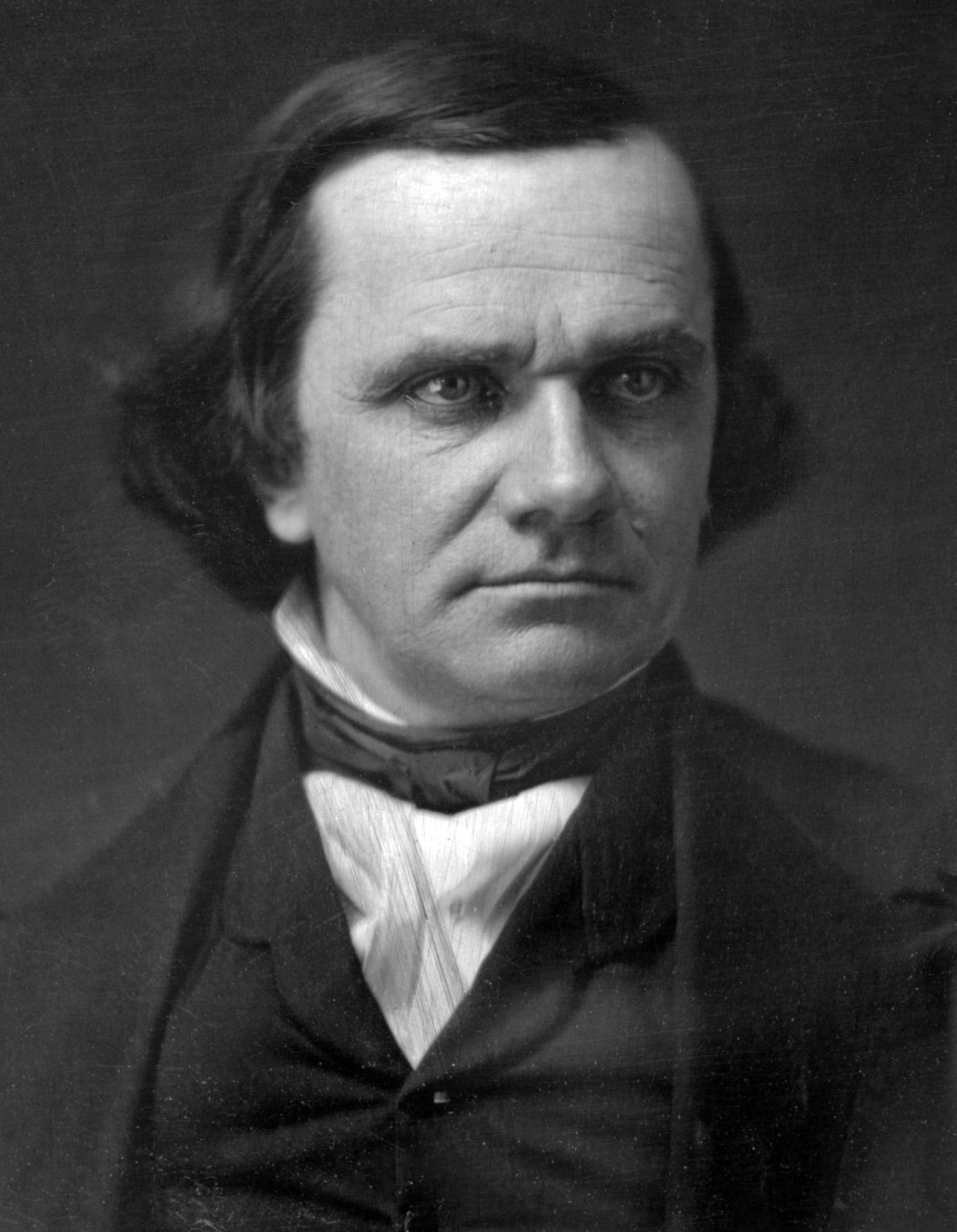Sixth Lincoln-Douglas debate https://cwcrossroads.wordpress.com/2011/01/18/race-and-slavery-north-and-south-some-logical-fallacies/#comment-47553, (13 October 1860), Quincy, Illinois
1860s
Contexto: You know that in his Charleston speech, an extract from which he has read, he declared that the negro belongs to an inferior race; is physically inferior to the white man, and should always be kept in an inferior position. I will now read to you what he said at Chicago on that point. In concluding his speech at that place, he remarked, 'My friends, I have detained you about as long as I desire to do, and I have only to say let us discard all this quibbling about this man and the other man-this race and that race, and the other race being inferior, and therefore they must be placed in an inferior position, discarding our standard that we have left us. Let us discard all these things, and unite as one people throughout this land until we shall once more stand up declaring that all men are created equal'. Thus you see, that when addressing the Chicago Abolitionists he declared that all distinctions of race must be discarded and blotted out, because the negro stood on an equal footing with the white man; that if one man said the Declaration of Independence did not mean a negro when it declared all men created equal, that another man would say that it did not mean another man; and hence we ought to discard all difference between the negro race and all other races, and declare them all created equal.
Stephen A. Douglas: Frases en inglés
In 1858 http://stoprepublicans.blogspot.com/2008/06/democrats-held-these-words-to-be-self.html
1850s
Fourth Lincoln-Douglass Debate http://www.nps.gov/liho/learn/historyculture/debate4.htm (September 1858)
1850s
Speech in Ottawa, Illinois http://www.bartleby.com/251/11.html (21 August 1858)
1850s
Speech in Chicago, Illinois http://www.bartleby.com/251/1002.html (9 July 1858)
1850s
Lincoln-Douglas Debates http://www.nps.gov/liho/learn/historyculture/debate1.htm (21 August 1858)
1850s
Fourth Lincoln-Douglass Debate http://www.nps.gov/liho/learn/historyculture/debate4.htm (September 1858)
1850s
Last public speech before his death, Chicago, Illinois (1 May 1861)
1860s
Speech in Chicago, Illinois (9 July 1858)
1850s
